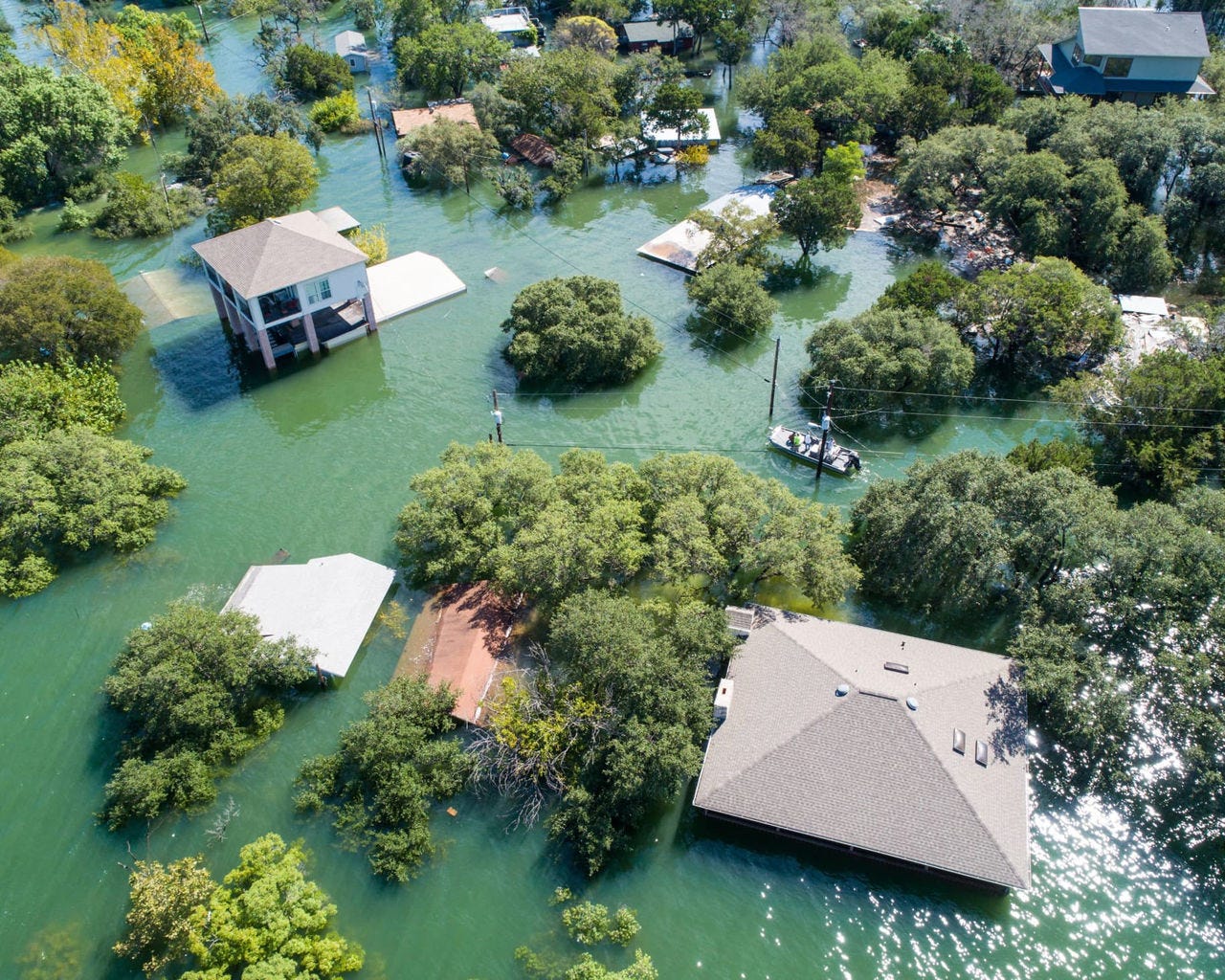Globally, climate change has increased the severity and the duration of wildfires by at least 30% on average over the past three decades. The harm caused by extreme wildfires goes much beyond the direct loss of life. Wildfire-induced air pollution, for example, is associated with 340 000 deaths every year. Ecosystems, too, can be damaged by fire beyond their natural ability to restore. Economic impacts may also be severe, as shown by the 2019-20 wildfires in Australia and the 2018 Camp Fire in the United States, which both caused over USD 20 billion in economic damages. As extreme wildfires are increasingly difficult to suppress, adaptation of land-use planning and ecosystem management will be critical to contain future social, environmental and economic impacts.
Climate risks and disasters
With climate change impacts set to grow in the future, countries around the world are already experiencing the effects of extreme floods, storms and wildfires as well as of sea-level rise or droughts. Understanding the changing nature of these escalating events is critical to building the resilience of communities, ecosystems, and economies to future climate impacts. Drawing on the latest scientific evidence, OECD work examines the trends, drivers, and impacts of climate risks to better assess, adapt to, and recover from the impacts of climate change.

Key messages
In recent decades, most of the world's regions have experienced long and intense droughts. In Europe, the number of people affected by droughts rose by 20% between 1976 and 2006. As climate change exacerbates drought risk, global population exposure to drought is expected to increase four-fold by 2050 with its duration to double by 2100. Droughts have significant economic costs. The 2012-13 drought in the United States caused an estimated USD 140 billion in damages. In Europe, annual drought losses are expected to reach EUR 65 billion by 2100. Planning and implementing adaptation measures early on can go a long way to avoid water scarcity, food insecurity and broader drought impacts.
Climate change-induced sea-level rise poses a significant threat to coastal communities, ecosystems and the global economy. Coastal areas are home to 40% of the world's population and host 75% of the world's largest metropolitan areas. As average sea levels are expected to increase by up to one meter before the end of the century. This will affect millions of people and international trade, likely reducing world GDP by 4% annually. To adapt to sea-level rise, the protection of coastal communities needs to go hand-in-hand with long-run efforts to relocate communities and economic activities from the most affected coastal zones.
Overshooting 1.5°C in global warming may push the earth over several tipping points, leading to irreversible and severe changes in the climate system. If triggered, tipping point impacts will rapidly cascade through socio-economic and ecological systems, leading to severe effects on human and natural systems and imposing significant challenges for human adaptation. The risk of crossing climate tipping points needs to be properly taken into account across policy areas such as mitigation, adaptation and technological innovation.
Climate change will affect all aspects of human life and the natural world, leading to increasing losses and damages. Lives and livelihoods, as well as the socio-economic stability of countries and entire communities are at risk, along with the natural environment on which we all depend. Ambitious and bold climate action today will reduce future losses and damages and avoid transferring the burden of climate impacts to future generations.
Context
Climate change will increase the duration of the fire weather season
Climate change particularly affects the severity of extreme wildfires, as well as the duration of the fire season in most regions of the world, which is the period when weather conditions are conducive to the occurrence of wildfires. With rising temperatures and changing precipitation and wind patterns, the yearly number of fire weather days will increase by over 40 in many parts of the world. Without appropriate adaptation measures, the impacts of wildfires are likely to increase.
Increased occurrences of drought affects agricultural activity in many regions of the world
The incidence of droughts is increasing in many regions of the world with potentially disruptive effects on global food supplies and rippling effects across many economic activities. In 2022, 65% of countries worldwide experienced drier conditions in cropland topsoil compared to the baseline period. Average soil moisture content in cropland topsoil decreased by 2.2% across OECD countries over the past five years, with some countries experiencing soil moisture declines of 4% or more over the past five years.
Sea levels are expected to continue rising
Global mean sea level is set to continue rising over this century, due to the thermal expansion and mass loss from glaciers and ice sheets. Compared to 1995–2014, average sea levels are projected to rise to 23 cm by 2050 and up to one meter by 2100 (based on fossil fuel-driven development scenario).
Climate tipping points are strongly interlinked
The climate system may reach one or more of its tipping points (i.e. critical thresholds beyond which the system reorganises, often abruptly or irreversibly) over this century due to climate change. The different tipping elements are not isolated from each other and interact at a global scale through atmospheric and ocean circulation. This means that the tipping of one element has the potential to trigger tipping cascades, with deep and often irreversible global consequences for natural and human systems, for decades or centuries to come.
Related publications
-
 22 January 2024
22 January 2024 -
 20 September 2023
20 September 2023
Related policy issues
-
Progress towards net-zero emissions must go hand in hand with efforts to build the resilience of people, economies and ecosystems to the mounting impacts of climate change.Learn more
-
Despite considerable progress, we need bolder action and deeper global co-operation to achieve net-zero emissions and limit climate change, which interconnects with biodiversity loss and pollution to form a triple planetary crisis. Addressing policy gaps and taking a systems-wide approach can also help countries to seize the economic opportunities offered by the net-zero transition. The OECD works to support governments and international bodies, including by providing rigorous data, analysis and policy recommendations, to raise ambition and improve outcomes on climate mitigation, adaptation, resilience and financing.Learn more



